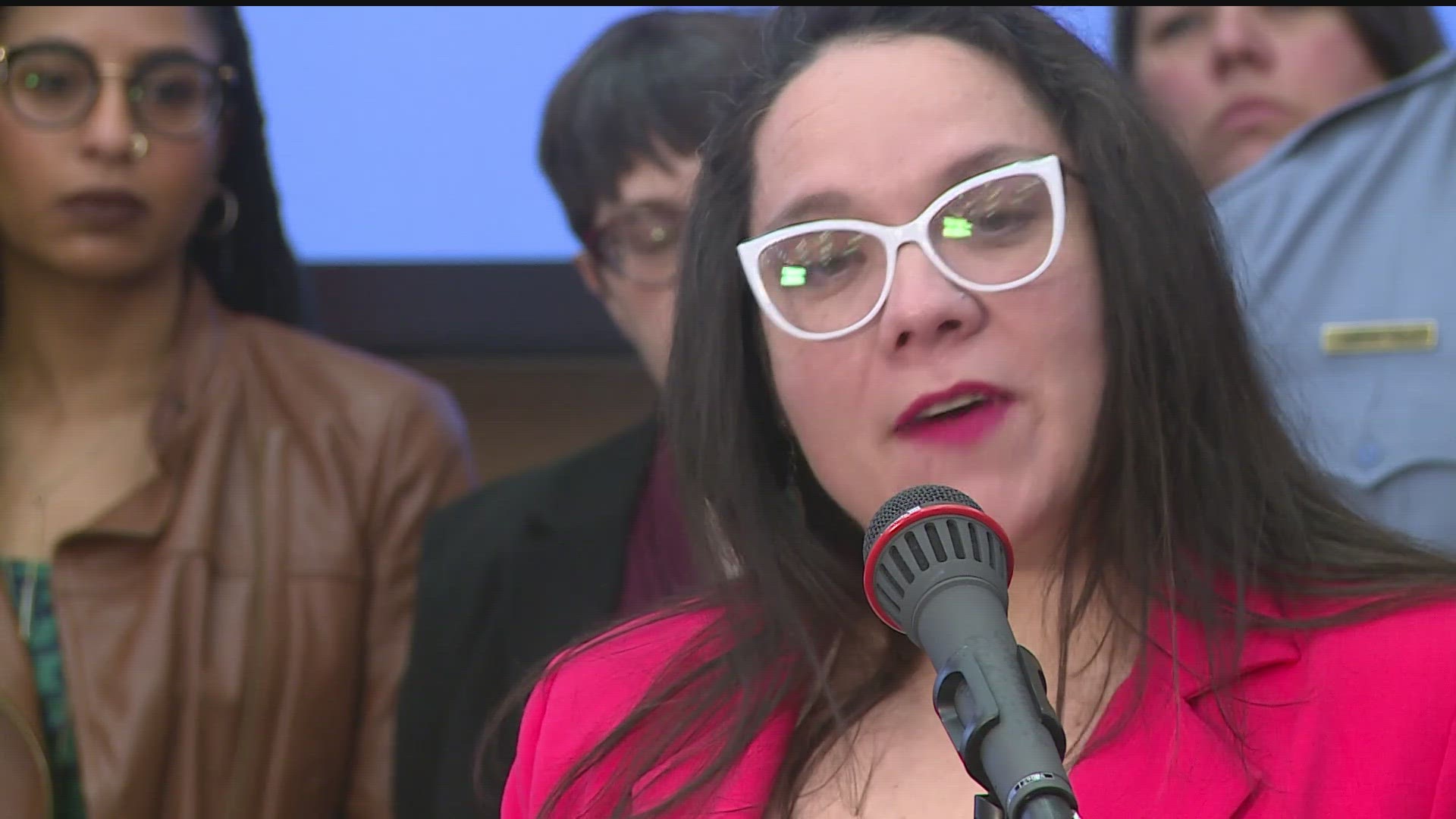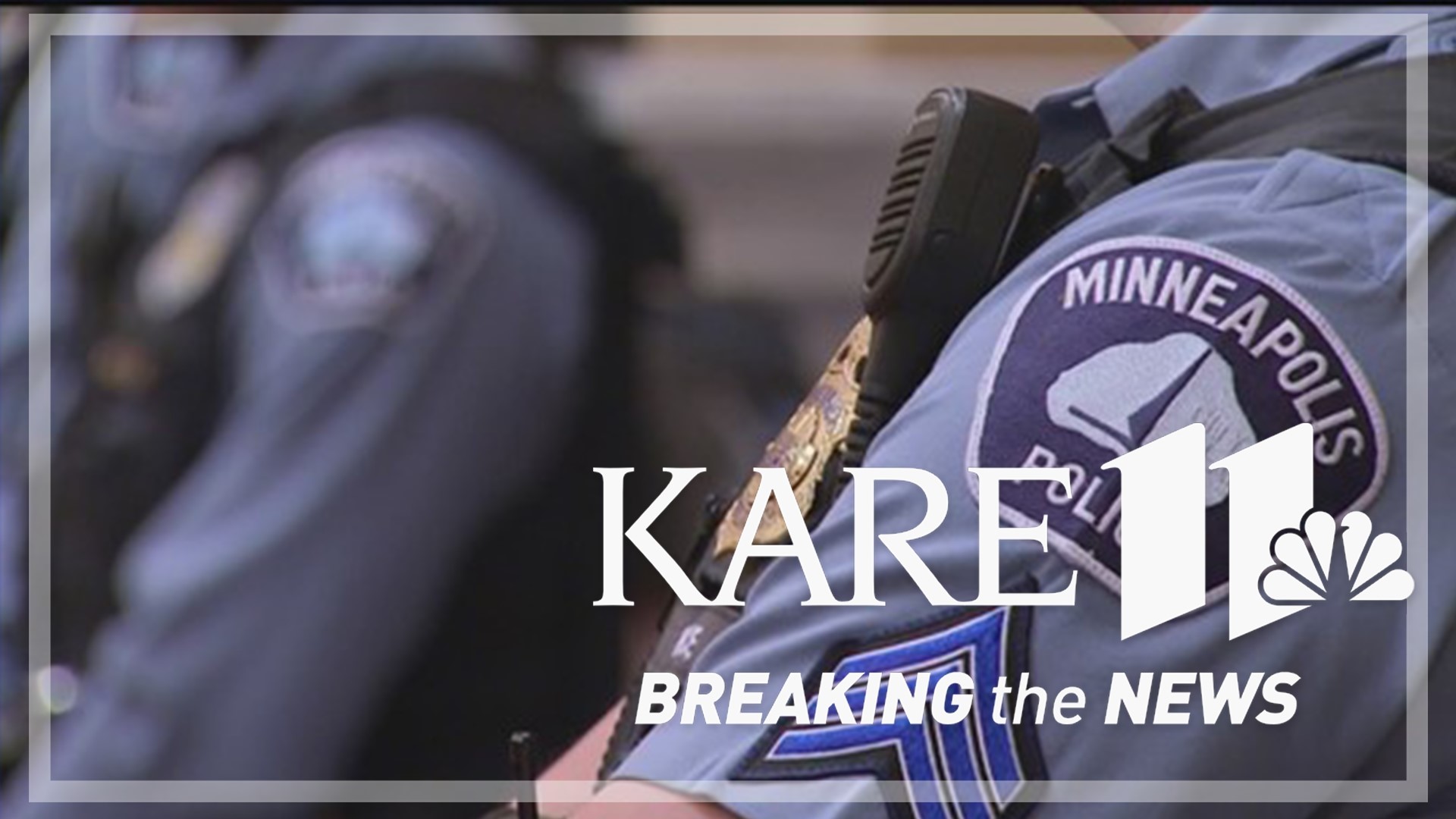MINNEAPOLIS — The Minneapolis City Council has voted to accept a settlement with the Minnesota Department of Human Rights that mandates changes for the city's police department following the murder of George Floyd.
Last year, the Department of Human Rights released findings from a civil rights investigation into the city of Minneapolis and the Minneapolis Police Department Wednesday, determining there is "probable cause that the City and MPD engage in a pattern or practice of race discrimination in violation of the Minnesota Human Rights Act."
The investigation was announced a few days after George Floyd was murdered by former MPD officer Derek Chauvin in 2020.
The city and state later agreed to negotiate a court-enforceable agreement, moving to address the long list of problems identified in the report.
"The way we do policing has been wrong," council member Jamal Osman in Friday's open session of the Minneapolis City Council prior the vote; the council spent nearly a full day behind closed doors on Thursday to discuss the settlement negotiations.
The settlement calls for putting limitations on the Minneapolis Police Department's use-of-force, and a focus on de-escalation; limitations on stops, searches and arrests; use requirements for body-worn cameras; reforms for police training; reviews and updating of MPD's policies; adopting non-discriminatory policing guidelines covering all protected classes; and support for officer wellness.
The settlement also calls for increased mental and behavioral crisis support in the field, including a behavioral health crisis response team.
The department would also increase transparency with its data and reviews on a public website.
City officials said many of the changes in the agreement have already been put into place, but the settlement will require the city to "demonstrate compliance" with an outside evaluator.
"This isn't about a checklist of paragraphs to say, 'we did this and we're done, we did that and we're done.' This is about making change real," MPD Chief Brian O'Hara said at a news conference on Friday. "It's about changing the culture of policing."
The city is also awaiting the results of a federal investigation into whether the police department has engaged in a "pattern or practice" of unconstitutional or unlawful policing. The Justice Department launched its probe a day after Floyd's murder. It is widely expected that the DOJ and Minneapolis may enter into a similar court-enforceable agreement, known in that case as a "consent decree." If that occurs, Minneapolis would become the only city in American history to operate under both a state and federal agreement of this kind.
According to a city news release, here are key elements of the court-enforceable settlement agreement:
Accountability, Oversight, and Transparency:
- Creates a new MPD Review Panel, chaired by the Chief or their designee, to review, analyze, and assess MPD’s enforcement practices.
- The panel will review uses of force, traffic stops, pedestrian stops, discretionary searches, citations, and arrests to determine if they are tactically sound or reflect a need for policy change.
- Requires data collection during certain officer interactions to advance non-discriminatory policing.
- Directs significant investment to new IT infrastructure, including new data collection, management, and analysis systems to improve accountability, transparency, and public safety.
- Requires a new implementation unit within MPD to guide development of policies and training practices.
Use of Force:
- Establishes new “levels” to more clearly define reportable uses of force.
- Except for in critical incidents, requires each officer who uses level 2 or 3 reportable use of force, and each officer who is physically present and witnessed the use of force, to accurately and thoroughly record all information in the required systems for each use of reportable force.
- Requires a supervisor to respond to the scene if significant force is used, which is based off the new levels of reported force.
- Requires officer who uses reportable force to document the reason for the initial interaction.
- Prohibits officers from sharing information with another officer for the purpose of creating or producing force reports and documentation.
Stops, Searches, and Seizures:
- Requires that, when feasible, officers state the basis for a stop on their body worn camera upon initiating a stop.
- Requires officers, who have completed an investigatory stop or enforcement related contact that does not result in a citation or arrest, to provide a card or document with their first and last name, and the incident number, to the individual or individuals involved in the interaction.
Officer Wellness:
- Requires MPD to assess what additional resources are necessary to provide the support services available to MPD employees and comport with mental health professional standards, and develop a plan, including a timeline for implementation, to prioritize and address the needs identified through the assessment.
- Requires the City to conduct an equipment, technology, and facilities audit so officers have the resources they need.
- Provides increased access to confidential counseling services and mental health supports.
Training:
- Adds more training requirements for officers, supervisors, investigators and field training officers (FTOs), among others – including training officer reviews completed by their direct trainees.
- Requires regular maintenance of and updates to an annual training plan responsive to various needs assessments including technology, health and wellness, and non-technology resources.
- The training plan will consider changes in the law, MPD policy, and to the Minnesota Board of Peace Officer Standards and Training requirements, as well as new applicable court decisions or litigation.
- Adds new standards for key training refreshers for all MPD officers on priority areas including use of force, culturally specific interactions, body camera policy compliance, and more.
- Requires annual instructor performance reviews that include classroom observations, feedback from external instructors where appropriate, trainee and peer review feedback, and in-person meetings with instructors to discuss performance and areas of improvement.
- Requires revisions to policies and training related to traffic stops and searches.
- Promotes diversity among instructors within the MPD Training Division.
Community Engagement:
- MPD will establish a public-facing webpage in multiple languages to receive comments from community members about MPD’s policies and practices.
- MPD will hold public engagement sessions on the department’s Mission, Vision, Values, Goals; policies regarding non-discriminatory policing and impartial policing; policies regarding use of force; and policies regarding stops, searches, and arrests.
- Prior to any changes to the Mission, Vision, Values, Goals, non-discriminatory policing and impartial policing, use of force, and stops, searches, and arrests policies, MPD will receive online comments from community members for at least 45 calendar days.
WATCH: The Minnesota Dept. of Human Rights details the results of its investigation into MPD in April 2022:


